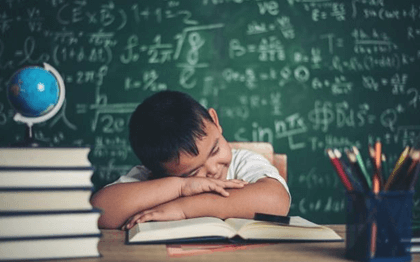BEYOND MARKSHEETS
In the quiet corridors of every school, where blackboards still echo with formulas and forgotten poetry, a silent crisis brews. It doesn’t arrive with sirens or announcements; it hides behind report cards, inside coaching notes, beneath the carefully practiced smiles of students whose dreams have been reduced to decimal points. Somewhere between entrance exams and final results, education — once a journey of wonder — has become a performance staged for applause that rarely feels genuine.
We live in a time where learning has been wedded to scoring, where a student’s identity is tangled with the digits on a marksheet. The joy of discovering the rhythm of a well-written sentence or the quiet awe of grasping a scientific concept is all too often sacrificed at the altar of competition. Success is narrowly cast — it looks like a rank, a cutoff, an admission letter to a prestigious college. Anything less is quietly marked as failure.
Yet beneath this superficial dichotomy lies a deeper truth — one that most systems fail to grasp. Not every child dreams in numbers. Some think in brushstrokes, in melodies, in metaphors, in movements. But the current order leaves little room for such expressions. The rigid frameworks of education ask all students to walk the same path, in the same pace, with the same measure of progress. In doing so, it not only stifles uniqueness but also damages mental well-being.
Ask the average student what they fear most, and you will rarely hear “darkness” or “ghosts.” You’ll hear “failure,” “exams,” “disappointment.” The pressures of expectation, from parents, teachers, peers — and worst of all, from within — build a quiet weight that no child should carry alone. Anxiety, fatigue, self-doubt — these have crept into schoolbags alongside textbooks, too often unnoticed until they become unbearable. Studies and surveys globally point to a distressing rise in student burnout, self-harm, and even suicides. And still, many schools continue to produce results, not individuals.
This is not an argument against excellence. But we must ask — what is excellence, truly? Is it the ability to repeat memorized answers in three hours? Or is it the capacity to question, to create, to adapt, to care? The best minds in the world were not born out of rigid conformity. They thrived because they wandered, asked strange questions, failed and tried again — and because they were allowed to.
Our classrooms need a reimagining. Assessment must expand beyond the traditional exams. Let students be evaluated through presentations, debates, fieldwork, journals, and creativity. Let them reflect their understanding in forms that speak to who they are, not just who the system wants them to be.
More importantly, we need educators who are nurturers — not supervisors of syllabus completion, but mentors of curiosity. A good teacher sees the flame in every student — whether it burns in science, stories, logic, or emotion — and gently protects it from being extinguished by comparison or ridicule. This requires training, compassion, and a shift from the transactional to the transformative.
Families, too, must awaken to a broader definition of success. A child’s life should not be reduced to a tally of trophies or the glow of percentile scores. Every conversation at the dinner table matters. When a child comes home tired, they shouldn’t be interrogated like an underperforming employee. They should be listened to, encouraged, understood. Validation must not come only when they win; it must come when they try.
And what of students themselves? They must be reminded — again and again — that they are more than what any exam can capture. They must be given the vocabulary to speak of stress, of fear, of confusion — without shame. They must know that failure is a comma, not a full stop. That life is not a single race but a series of journeys. That they can change direction, explore new territories, stumble, pause, and begin again.
The language of education must include empathy. It must make space for silence, for thought, for ambiguity. It must teach students to navigate not just the known but the unknown — the grey areas where life’s real tests emerge. Schools should be preparing citizens, not just employees; thinkers, not just achievers.
A marksheet is, at best, a snapshot. It cannot show the years a student spent struggling to read but never gave up. It cannot reflect the courage it took to stand in front of a class and speak for the first time. It cannot measure the imagination that doodles entire worlds in the margins of a notebook. And it should never be allowed to determine self-worth.
As we stand at the threshold of an era shaped by artificial intelligence, automation, and constant change, the abilities that will matter most are those we’re not teaching nearly enough — resilience, adaptability, critical thinking, creativity, and emotional strength. The time has come to widen the frame, to redefine success in a way that honours diversity of thought, of talent, of temperament.
There is a soft revolution waiting to be born — not in policies and committees, but in classrooms and conversations, in the way we speak to our children and the way we allow them to grow. Let this revolution begin not with declarations, but with a quiet shift — from marks to meaning, from results to reflection, from pressure to purpose.
Education, at its core, must once again become a liberating force — not a burden to be borne but a bridge to be crossed with hope. Only then will we move beyond the tyranny of marksheets and discover the full measure of what it means to be human — and to truly learn.
(Author is RK Columnist and can be reached at [email protected])








